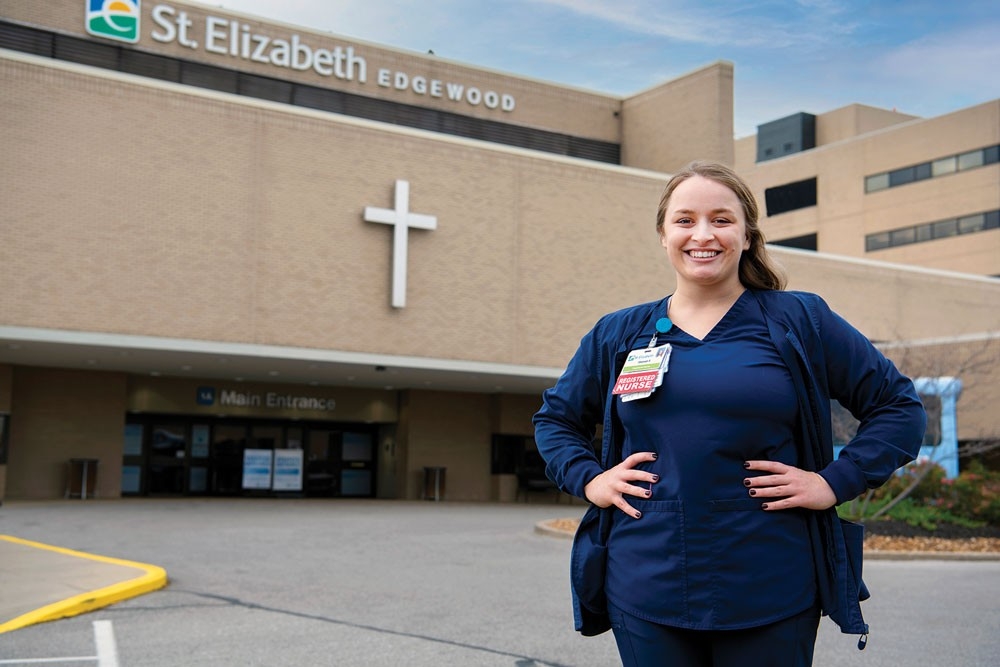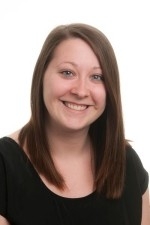Months later, when the number of COVID-positive patients seemed to decrease, Borders was sent back to her post in the cardiothoracic unit at St. Elizabeth in Edgewood. While she’s happy to be back with her unit, she’s still feeling the effects of the pandemic every day.
“Now that I’m back into my normal role, it’s finally hitting me—physically and emotionally. Hospitals are still understaffed. Burnout is a real thing right now,” she says. “I’ve had a lot more time to think and observe the way people are reacting to what’s going on. I am much more conscious of spread and contamination. I’m trying to keep a positive outlook, but it can be really discouraging and frustrating when people don’t follow guidelines or say it’s a hoax. The way I live my life is that I assume everyone is COVID-positive.”
Borders and her team mostly see patients coming straight from the intensive care unit who are recovering from lung surgeries, heart surgeries or cardiac catheterizations. She performs three assessments a day on each patient—checking chest tubes and epidurals and monitoring vital signs and respiratory statuses every two hours.
Borders isn’t dressed head to toe in PPE anymore, but she still needs to stay alert while she's on the floor.
“All of these patients are critical and have the potential to decline rapidly,” she says. “I spend a lot of my days bouncing around from patient to patient with no time to sit down except my lunch break.”
During the last several months, Borders has reflected on her time as an undergraduate student at NKU.
“It wasn’t until my freshman year of college that I understood the diversity of
nursing and grew to appreciate it as a profession,” she says. “I’m able to use that knowledge to better understand what’s happening now.”
Borders carries her education with her with every patient under her care at the hospital. She’s only been a nurse for 18 months, and she experienced a pandemic for the very first time, but there isn’t anywhere else she would rather be.
“I loved being part of the pandemic response team. If they asked me to go back, I would love to do that again,” she says. “It’s harder than any other nursing job I’ve done so far, but it’s worth it and I’ve adapted now. I know that mentally, and professionally, I will be different after this experience.”









